Elevate Your Brand with Apppl Combine: The Ultimate Video Production Agency
Apppl Combine is a top video production agency, crafting high-quality, creative videos to elevate your brand.
2024-04-19
Ad Agency, Advertising Agency
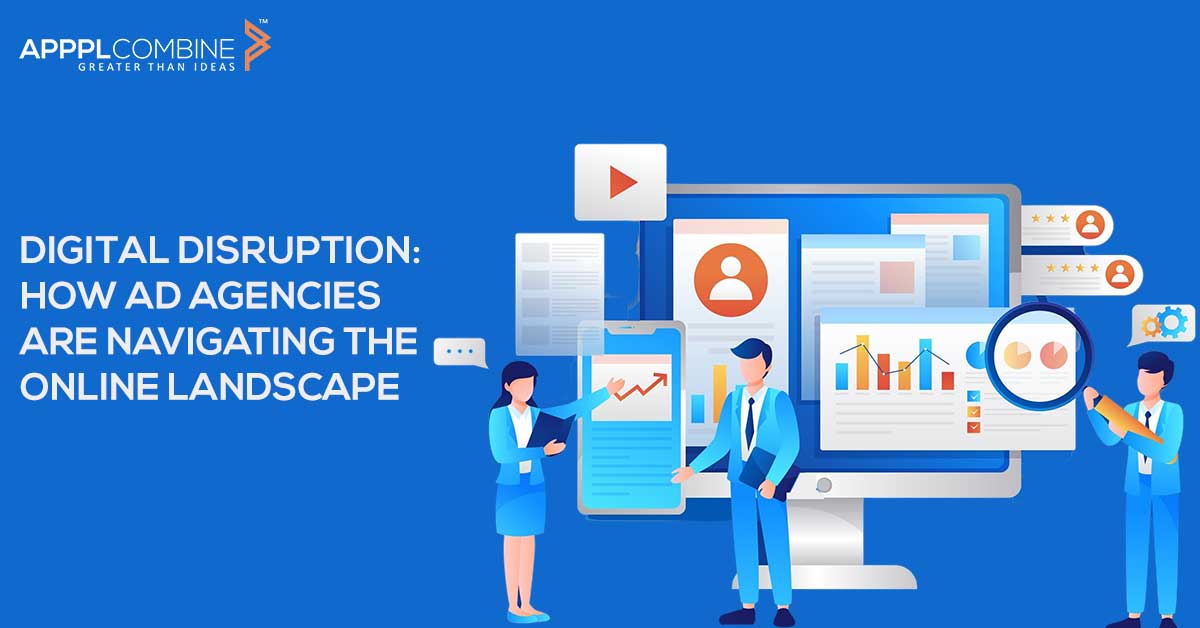
Impact of digital disruption on India's ad industry and strategies for navigating change.
In an era marked by rapid technological advancements, the concept of digital disruption has emerged as a transformative force, reshaping industries and landscapes globally. This phenomenon refers to the profound impact that digital technologies have on traditional business models, challenging established norms and fostering innovation. As we delve into the intricate dynamics of digital disruption, we explore its implications on the online landscape and the pivotal role played by ad agencies, particularly in the context of India.
Digital disruption encompasses a spectrum of technological innovations, from artificial intelligence and big data to social media and e-commerce. These advancements often lead to the creation of new markets, the demise of outdated business models, and a fundamental shift in consumer behavior. The online landscape, in particular, bears witness to these seismic changes, as businesses strive to stay relevant in an environment that is constantly evolving.
Digital Disruption in online landscape
Digital disruption has reshaped the advertising landscape, challenging traditional models and pushing agencies to adapt to the online realm. This shift comes with various types of disruptions, each presenting unique challenges and opportunities.
1. Virality: Riding the Wave or Wiping Out?
The rise of social media has given campaigns the potential to go viral, reaching unprecedented audiences. Ad agencies must navigate the fine line between creating shareable content and the risks associated with unpredictable virality. While viral campaigns can boost brand visibility, they also require careful management to avoid unintended consequences.
2. Data Breach: Protecting Trust in the Digital Age
As agencies increasingly rely on data for targeted campaigns, the threat of data breaches looms large. Maintaining client and consumer trust is paramount. Agencies must invest in robust cybersecurity measures, ensuring the protection of sensitive information. A breach not only jeopardizes data but can irreparably damage an agency's reputation.
3. Polarization: Navigating the Diverse Digital Landscape
The online space often amplifies societal divisions, posing a challenge for ad agencies aiming to appeal to diverse audiences. Navigating polarized opinions requires a delicate balance in messaging to avoid alienating portions of the audience. Agencies need strategies that resonate across various demographics while staying true to brand values.
4. Information Overload: Cutting Through the Noise
In the digital era, consumers are bombarded with information, leading to attention scarcity. Ad agencies must craft campaigns that cut through the noise, capturing attention and delivering a clear message. Creativity, concise storytelling, and understanding the platforms where the target audience resides are essential in overcoming the challenge of information overload.
5. Crisis Situation: Turning Challenges into Opportunities
Digital disruptions can quickly escalate into full-blown crises. Whether it's negative social media sentiment, a PR disaster, or a viral campaign gone awry, ad agencies must be equipped to handle crises promptly and effectively. Having a crisis management plan, transparency, and a quick response are crucial in mitigating damage and preserving reputation.
6. Lack of Authenticity: Building Genuine Connections
In a digital landscape filled with curated content, authenticity stands out. Ad agencies face the challenge of creating campaigns that resonate on a personal level. Authenticity builds trust, and consumers are more likely to engage with brands that genuinely reflect values. Crafting campaigns with sincerity, transparency, and relatability is key to overcoming the perception of inauthenticity.
Navigating the Landscape: Strategies for Success
1. Adaptability and Innovation: Ad agencies must embrace change and constantly innovate to stay ahead in the rapidly evolving digital landscape.
2. Investment in Cybersecurity: To address the threat of data breaches, agencies need robust cybersecurity measures, employee training, and a proactive approach to data protection.
3. Diversity and Inclusion: To navigate polarization, agencies should prioritize diversity and inclusion in their teams, ensuring a broad perspective in campaign creation.
4. Audience-Centric Approach: Overcoming information overload requires a deep understanding of the target audience. Agencies should tailor campaigns to specific platforms and consumer behaviors.
5. Crisis Management Preparedness: Having a well-defined crisis management plan, coupled with transparency and quick responses, can turn crises into opportunities for rebuilding trust.
6. Authentic Storytelling: Crafting authentic narratives that resonate with consumers is vital. Ad agencies should focus on building genuine connections through relatable content.
For ad agencies in Delhi, navigating this dynamic digital landscape requires agility, adaptability, and a keen understanding of emerging trends. The traditional advertising playbook has been rewritten, with digital platforms becoming the new battleground for brands vying for consumer attention. Adapting to this shift, ad agencies are leveraging data-driven insights to tailor marketing strategies that resonate with online audiences.
One notable aspect of digital disruption is the democratization of advertising. The rise of social media platforms and online marketplaces has provided businesses, regardless of size, with the opportunity to connect directly with their target audience. Ad agencies in India are capitalizing on this trend by crafting campaigns that engage users on platforms like Facebook, Instagram, and Twitter, fostering a more personalized and interactive brand-consumer relationship.
The advent of programmatic advertising is another facet of digital disruption that has revolutionized the ad industry. This automated, data-driven approach to buying and placing ads allows agencies to optimize campaigns in real-time, ensuring maximum impact and efficiency. Ad agencies in India are increasingly embracing programmatic advertising to enhance their clients' reach and engagement in the crowded online space.
However, with great opportunities come significant challenges. Ad agencies grapple with the need to stay abreast of the latest technological trends, while also addressing concerns related to data privacy and ad fraud. As the online landscape evolves, agencies must strike a delicate balance between innovation and ethical considerations to build trust with both clients and consumers.
In the Indian context, where digital adoption is rapidly increasing, ad agencies play a crucial role in bridging the gap between traditional and digital advertising. They act as catalysts for businesses looking to make a seamless transition into the online realm, ensuring that marketing strategies align with the preferences and behaviors of the diverse Indian audience.
In conclusion, digital disruption is a force that cannot be ignored, and ad agencies in India are at the forefront of navigating this transformative wave. By embracing innovative technologies, adapting to shifting consumer behaviors, and fostering a culture of continuous learning, these agencies are not just surviving but thriving in the fast-paced world of digital advertising. As the online landscape continues to evolve, the role of ad agencies remains pivotal in helping businesses not only stay afloat but also stand out in the digital sea of opportunities.

Apppl Combine is a top video production agency, crafting high-quality, creative videos to elevate your brand.
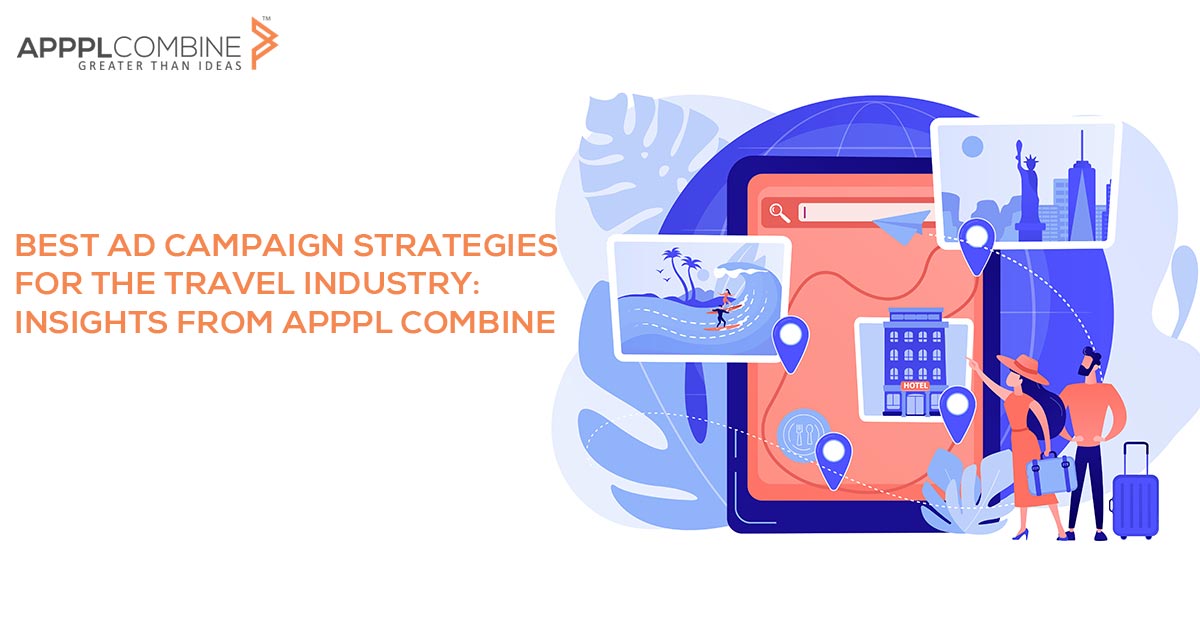
Discover effective ad campaign strategies for the travel industry with insights from Apppl Combine.

Apppl Combine: Top ad agency in Delhi-NCR, crafting impactful campaigns for the education sector

Apppl Combine is the premier choice for brand management in the hospitality sector. Discover their strategies for enhancing guest experiences, building reputation, and driving business growth.

Apppl Combine, a top ad agency in Delhi NCR, specializes in consumer goods advertising, using data-driven strategies, multi-channel campaigns, and creative excellence to achieve success.

Apppl Combine: Full-service agency offering strategy, creative, marketing & tech for business growth.

Discover how Apppl Combine, Delhi's top creative agency, revolutionizes entertainment with innovative content, strategic partnerships & data-driven campaigns for impactful and personalized experiences

Discover how Apppl Combine, the top ad agency in Delhi NCR, helps sports brands thrive with unique strategies in branding, influencer partnerships, engaging content, and fan loyalty.

Discover how Apppl Combine is redefining marketing as a creative marketing agency. Learn about our blend of creativity, strategy, and technology to create impactful campaigns for modern businesses.

Kajaria Eternity and Apppl Combine redefined leadership in the GVT tile market through innovative campaigns and strategic branding.

The Kerovit ad campaign’s journey with Apppl Combine demonstrates the importance of a clear and consistent brand strategy, particularly in competitive markets.

Learn how advertising agencies can stay ahead in the digital age by embracing technology, using data-driven decisions, and adapting to the evolving digital landscape.

Learn how a top digital marketing agency in Delhi can help your brand thrive with expert SEO, PPC, social media, and more.

This article delves into the critical role of digital marketing agencies in managing online reputation crises.

Explore how SEO and SEM strategies enhance the online visibility of digital ad agencies, ensuring they stand out in the competitive digital landscape.
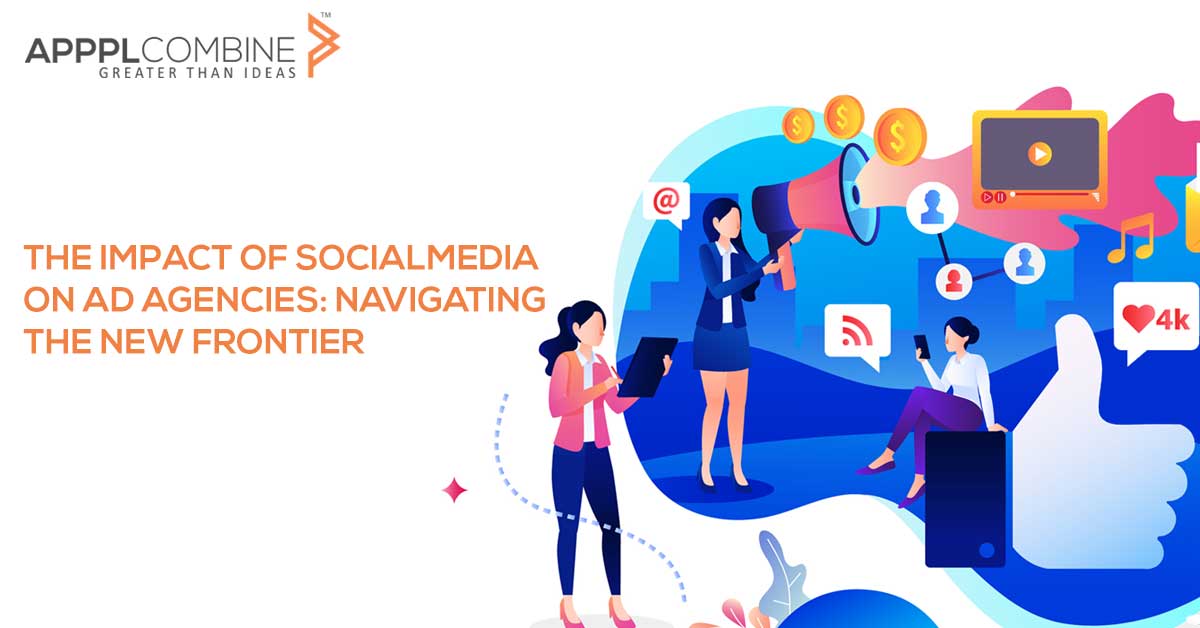
Explore how social media is transforming digital ad agencies. Learn about challenges, opportunities, and strategies from a leading digital marketing agency in Delhi, apppl combine.

Discover strategies to leverage emotional branding and form authentic connections with your target audience. Learn how to identify emotional appeal, create genuine bonds, utilize storytelling.

Impact of digital disruption on India's ad industry and strategies for navigating change.

In this blog you will find out how client-agency collaboration drives impactful advertising campaigns by leveraging key factors like communication, trust, and adaptability for marketing success.

Explore how influencer marketing can drive brand growth, shape consumer behavior, and create authentic content. Learn strategies for choosing the right influencers and measuring campaign success.

Discover the differences between rebranding and brand refresh, and learn how to choose the right strategy to update your brand's image effectively.

Discover how brand extension strategies can help your business unlock new market opportunities and expand your reach.

Discover key brand positioning strategies to help your brand stand out from the competition and attract more customers.

Explore effective strategies for rebuilding brand reputation and restoring trust after facing a crisis.

Explore the intricacies of influencer marketing, its evolution, and the pivotal role of authenticity.

Discover how User-Generated Content (UGC) can revolutionize your marketing strategy.

Explore the importance of trust and brand consistency in creating a strong connection with your audience.

Explore key techniques and strategies to develop a distinctive brand identity that resonates with your target audience and sets you apart from competitors.

Brand guidelines play a crucial role in branding by providing a comprehensive framework for consistent branding across all platforms and touchpoints.

Explore effective strategies to leverage social media for brand success. Find out how to identify the right platforms, create engaging content,utilize influencer partnerships, and measure your success

Explore the latest trends and strategies for successful brand management in the digital age.

Discover how a marketing agency in Delhi can help businesses unlock growth, expand their reach, and connect with their target audience effectively.

Elevate your brand with effective brand management agency services. Learn about the role of brand management agencies, the services they offer, and the benefits of hiring them.

Unlocking Business Success: Discover the pivotal role and importance of advertising agencies in Delhi NCR.

Discover the pivotal role advertising agencies play in shaping brand success in Delhi's bustling commercial scene.

Unveiling the power of Delhi's ad agencies: From crafting brand stories to navigating the digital landscape, discover how these agencies fuel business growth and shape consumer engagement.
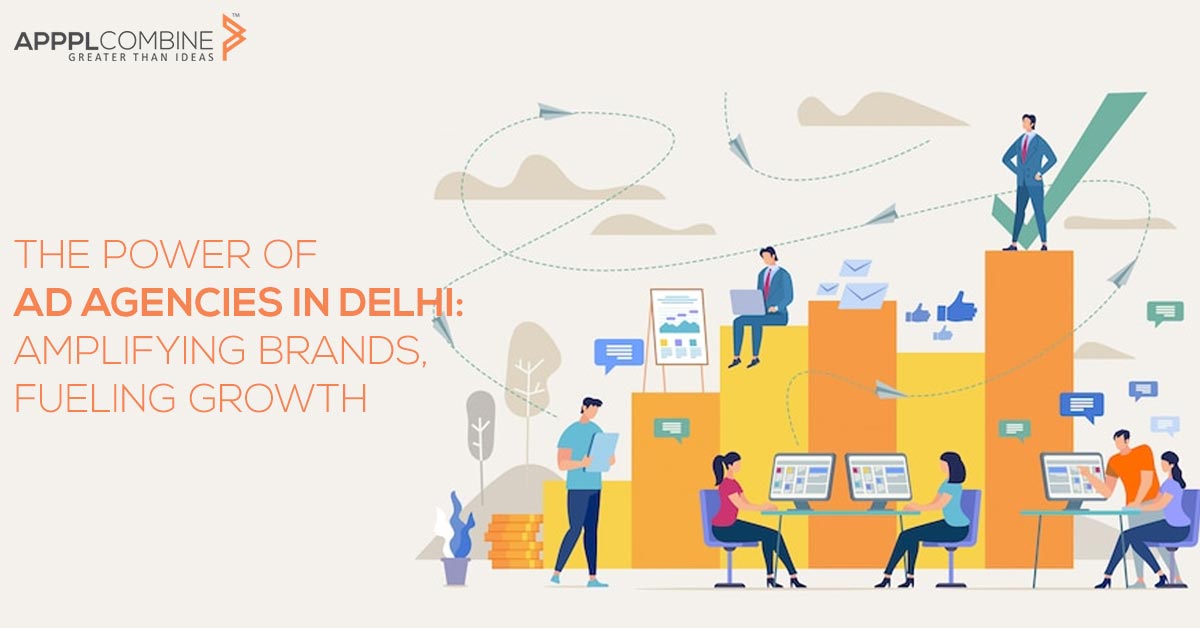
Uncover how Delhi's ad agencies are shaping brand success stories. Explore their expertise in crafting targeted campaigns that resonate with consumers and propel businesses to new heights
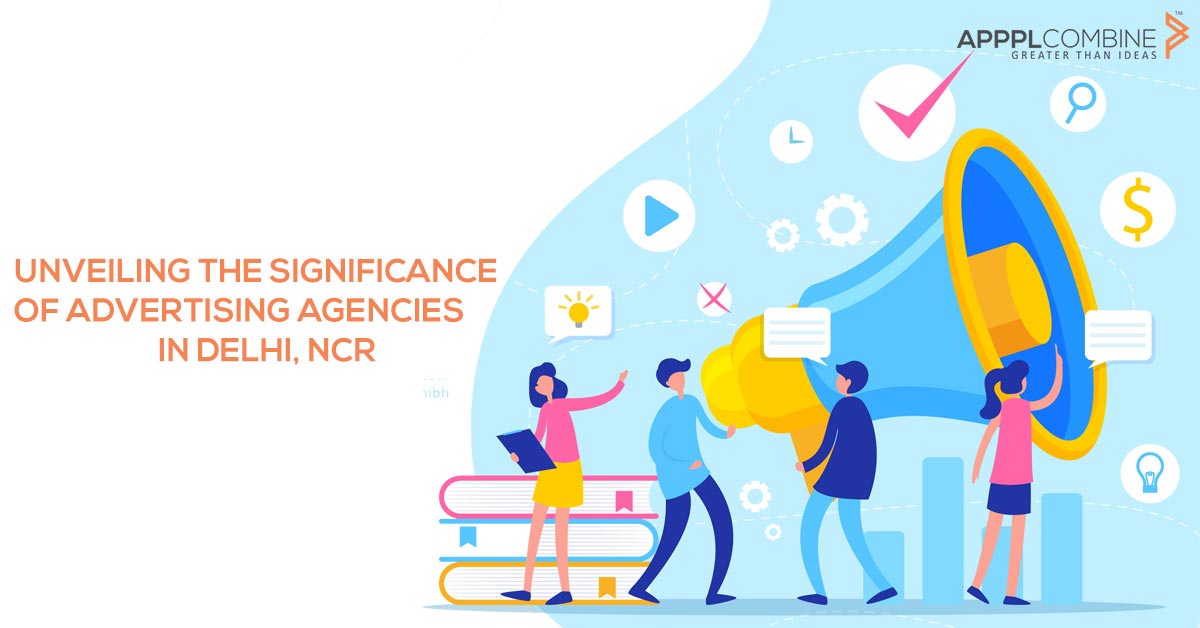
Uncover the crucial role advertising agencies play in shaping brand communication and driving success in Delhi NCR.

Advertising agencies serve as the creative backbone and strategic architects behind brand promotions.

Explore the indispensable role of advertising agencies in today's fast-paced business world
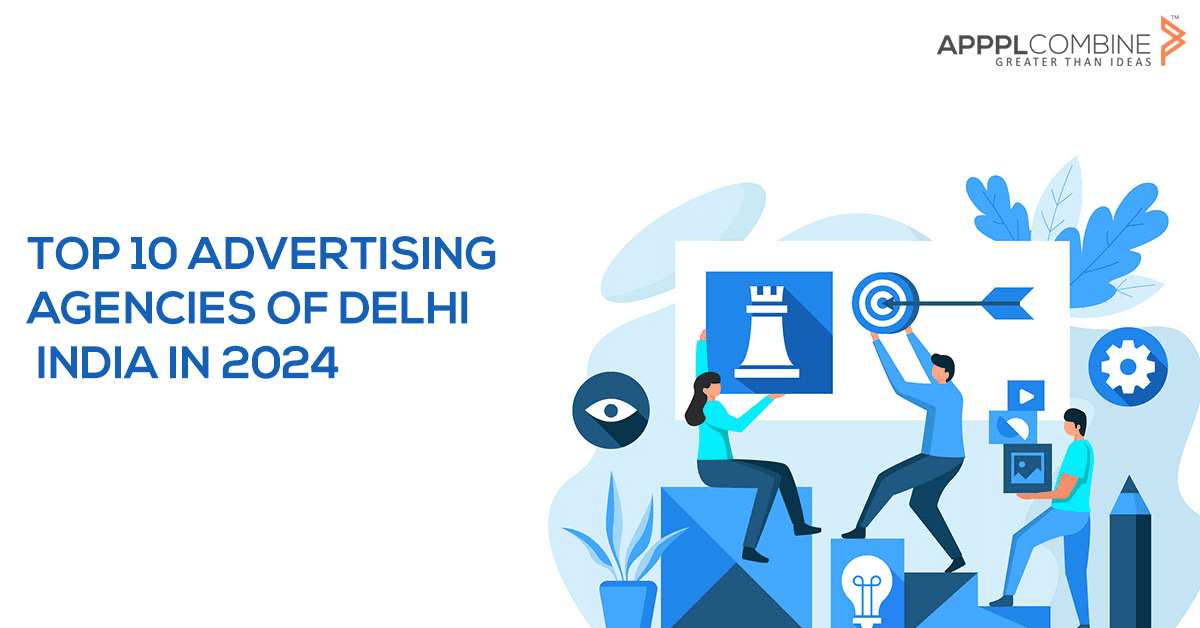
Explore the top 10 advertising agencies in Delhi NCR for 2024, where creativity and innovation converge.

Choosing the right advertising agency is a pivotal decision for any business aiming to enhance its brand visibility, reach a target audience, and achieve marketing goals.

Discover the strategic prowess of advertising agencies in Delhi, serving as partners for businesses seeking effective brand communication.

how full-service advertising agencies in Delhi NCR play a crucial role in seamlessly integrating Artificial Intelligence (AI) for business growth and competitiveness.

Discover how a creative agency in Delhi can inject innovation, craft captivating narratives, and build a brand that thrives.

Explore the key secrets to creating a successful marketing campaign, from setting clear goals to data-driven optimization.

Explore the evolving role of technology in brand marketing. Discover how technology has transformed customer-centric approaches, personalization, communication, and teamwork in the digital age.

Explore the multifaceted world of branding agency services and the role of Apppl Combine, a leading branding agency in Delhi. Learn how a professional branding agency defines brand strategy.

Explore the pros and cons of in-house marketing vs. advertising agencies to make an informed business choice.

Discover the comprehensive services provided by full-service advertising agencies, their benefits, and how to choose the right agency for your business needs.
Explore the role of creative agencies in branding, their services, and the benefits they bring to businesses. Learn how a creative agency can enhance your brand's visibility, create a unique identity.

Explore the transformative role of creative advertising agencies in Delhi, shaping brand landscapes, driving innovation, and inspiring change.

Selecting the ideal advertising agency will give you the confidence to confidently navigate New Delhi's dynamic business scene.

In the bustling streets and vibrant markets of Delhi lies a network of creative advertising agencies that serve as the architects of brand narratives.
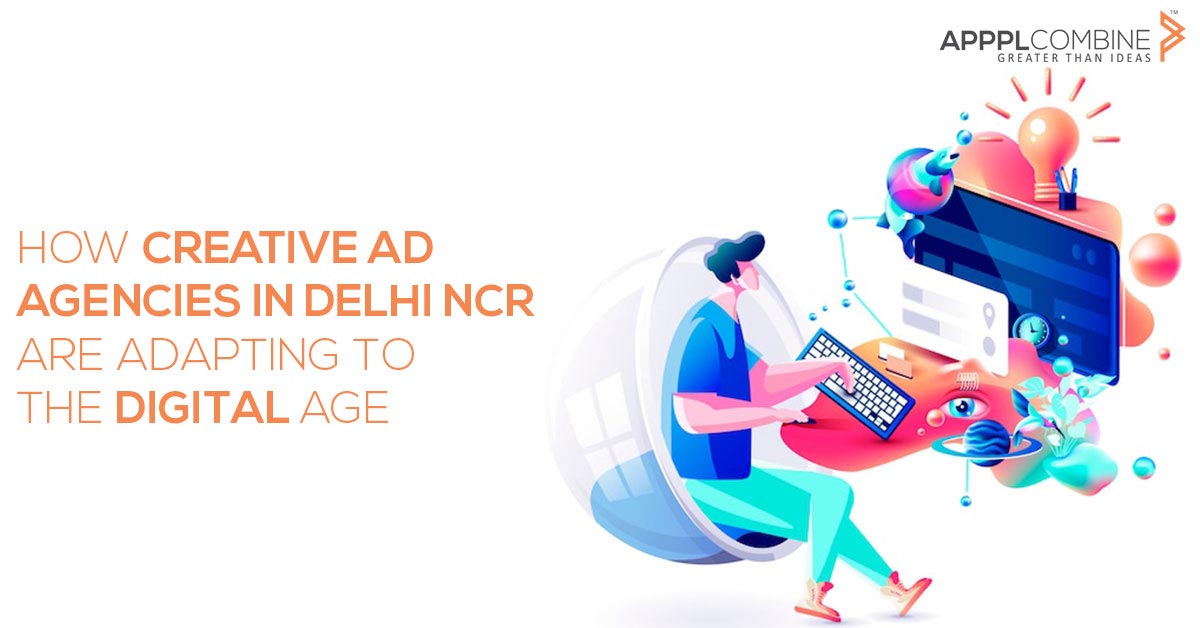
Discover how creative advertising agencies in Delhi NCR lead the digital transformation, leveraging online platforms, data analytics, and immersive experiences for impactful brand storytelling.

Explore the world of creative advertising agencies in Delhi NCR and discover the delicate balance between art and strategy.

Factors to consider when choosing the right advertising agency for your business. Apppl Combine offers a proven track record, comprehensive services, and a client-centric approach for effective market

Top 10 Advertising Agencies in Delhi. Find the best advertising firms in Delhi, India, with expertise in ad campaigns, brand management, and more.

Advertising plays a crucial role in shaping consumer behavior and promoting products and services. However, the ethical implications of advertising have long been a topic of debate.

An effective online presence in the digital age requires a website that useful as well as attractive. Selecting the ideal agency is essential for successful web design and development projects.

Content marketing has emerged as a powerful strategy for businesses to connect with their target audience, build brand awareness, and drive meaningful results.

Learn about the process of brand design and development, from defining your brand strategy to establishing a brand voice and monitoring your brand's performance.

Learn effective retargeting strategies to bring back lost customers and boost your online marketing efforts. Explore how segmentation, dynamic retargeting, etc.

Learn how to create a cohesive branding strategy for your company to establish a strong brand identity and connect with your target audience.

In today's competitive marketplace, traditional advertising alone is no longer sufficient to engage and capture the attention of consumers.
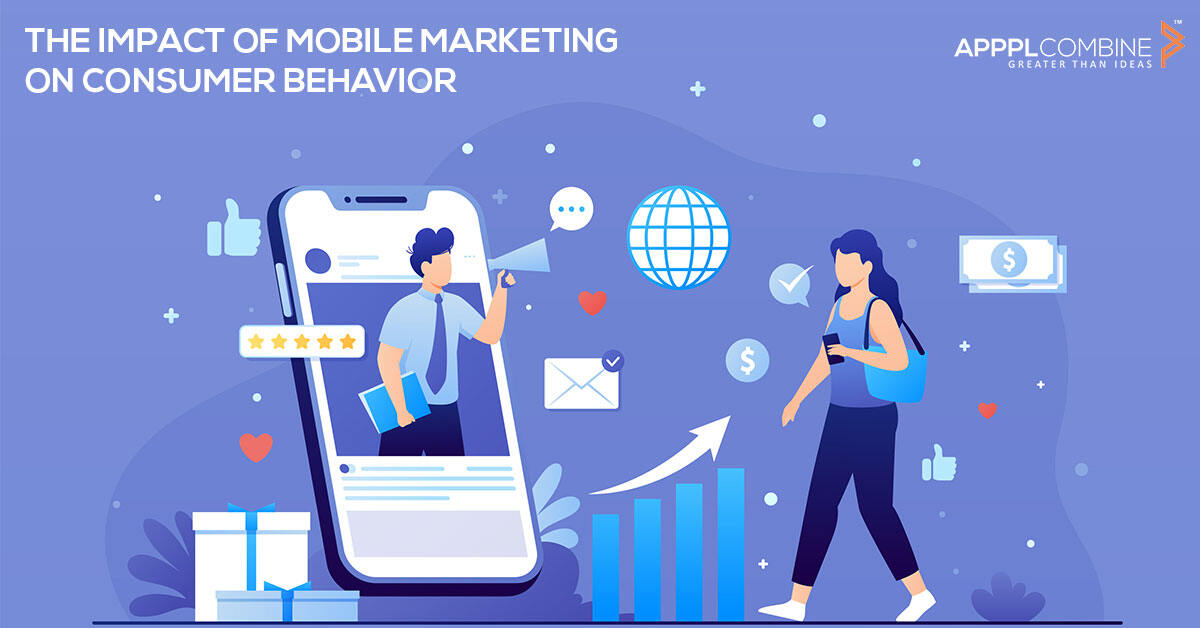
Examining the impact of mobile marketing on consumer behavior, exploring its influence on consumer decision-making, brand loyalty, and overall customer experience

Video marketing has become an essential tool for businesses to increase brand awareness, engage with customers, and drive sales.
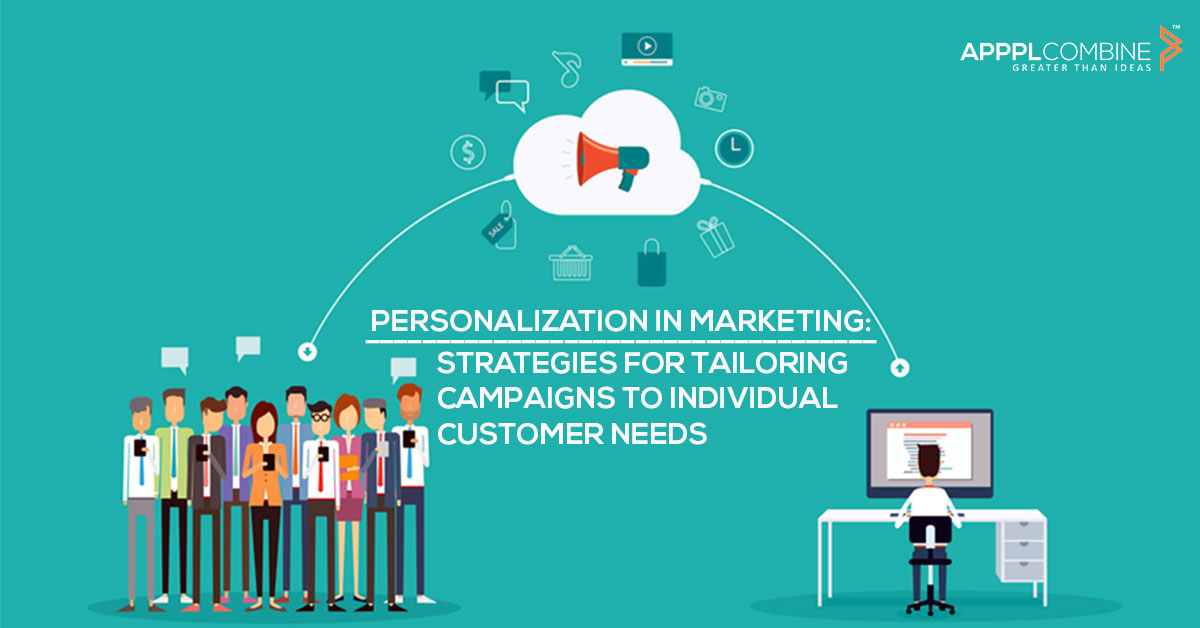
Personalization in marketing is the practice of tailoring marketing campaigns to the individual needs and preferences of customers.

A strong content strategy is essential for any digital marketing campaign. A content strategy outlines what content will be created, who the target audience is, how it will be distributed,

In the ever-evolving landscape of digital marketing, businesses have a wide array of options when it comes to advertising their products or services.

Multichannel marketing is a strategy that uses multiple platforms and channels to communicate with customers, increase engagement, and drive sales.

Personalization is the process by which you tailor your digital marketing efforts to the needs and wants of your target audience.

A branding agency help businesses figure out who they are and how they want to present themselves to their customers.

A boutique agency is a relatively small company that focuses on providing a high-end service to its customers.

A creative agency is a term used to describe a company that provides a variety of marketing and advertising services. Basically, they can assist you with any form of creative plan, task, or promotion.

Advertising agencies are service providers that help their clients to initiate, create and strategize marketing and communication measures. An advertising agency can either support its customers in al
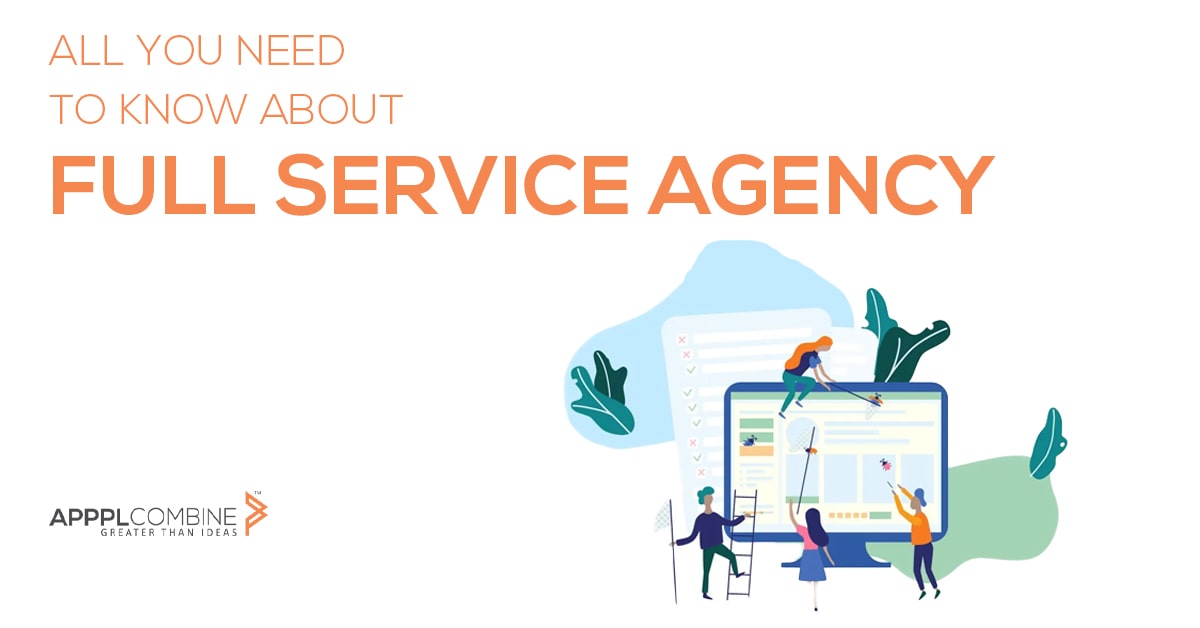
A full-service agency is a company that provide the services of a creative team, digital marketing team, and PR team all under one roof.

A brand is more than just a logo; it represents your company, your mission, and serves as the focal point for all aspects of your marketing.

Visual identity is one of the most crucial elements of a business’s branding efforts. It’s what gets people to notice you and learn more about your company, and it’s what helps them remember your bran

To guide you through the strategizing phase below are few points that will help one go a long way:

Brand building is really important to give a brand a unique touch and persona and it helps new businesses get a personalized voice, unmatched by competitors.

Brand consistency refers to delivering the brand message in line with the brand identity, values, and strategy over time.